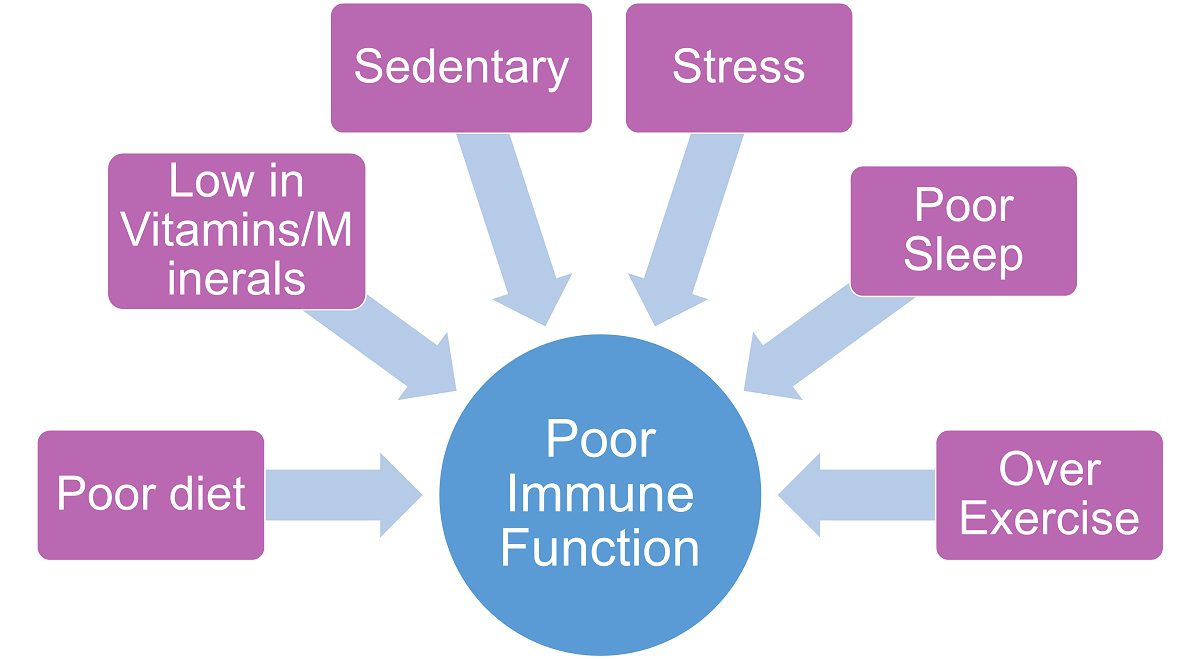Four health changes we experience as we reach 50
|
Listen to this article
Getting your Trinity Audio player ready...
|
Ever wondered why we why experience health changes as we age? We spoke to FutureYou Cambridge’s Dr Max Gowland, who explained what happens, why it occurs, and how we can manage it.

Dr Max Gowland
Since 1900, the average life expectancy has risen from 47 to 79, with women living around two to three years longer than men. Improved hygiene combined with better nutrition are two significant contributing factors of longer life, alongside advances in medicine. Now that we’re living longer, we’re noticing some health changes as we age.
As we reach our fifties, we tend to notice a decline across a range of health areas. The four main areas we should turn our attention to include:
- Cardiovascular system
- Cognitive function
- Gut and immune health
- Body composition
Cardiovascular health
Our heart beats 100,000 times every day, pumping five litres of blood through 60,000 miles of capillaries. It’s an extraordinary organ, but one that is prone to disease as we age.
What happens?
Coronary Heart Disease is the most common problem we deal with, affecting around 7.6 million people in the UK alone. It occurs when the large coronary arteries of the heart become narrowed due to a build-up of atheroma, a complex fatty deposit that increases over time.
What causes it?
It is far more complex than just ‘eating too much cholesterol’. Around 80% of cholesterol found in a typical lipid panel blood test is a result of one’s tendency to produce it ‘endogenously’. In other words, the cholesterol is produced within the body rather than as a result of eating fatty foods.
Pain from this fatty plaque blockade can manifest itself as angina – chest pain caused by reduced blood flow to the heart muscles. If a full arterial blockage occurs, this can become a myocardial infarction, which is a type of heart attack.
Unfortunately, the biggest risk [to our hearts] is age itself.
Other risk factors of poor cardiovascular health include smoking, a poor diet, stress, obesity, and lack of activity. Unfortunately, the biggest risk is age itself.
How can we manage this?
Exercise is the magic silver bullet. Combined with healthy eating, this will ensure your heart will stay as healthy as it can be for as long as possible.
On the supplement front, Omega 3 fatty acids (which are found in fish oil and krill oil) contain the most important active ingredients: DHA and EPA. Both of these are essential for not only heart health, but vision and brain health, too.
These nutrients exist naturally in fish oil, though data from Public Health England (PHE) has shown that the average intake of oily fish is only a third of the daily recommendation.
Other supplements that can aide in good heart health include Thiamin (Vitamin B1) which has been proven to promote the normal functioning of the heart, and Vitamin K2. Vitamin K2 is known for its contribution towards bone strength, which is does by depositing calcium into the bone by ‘stealing’ that calcium from the inside of our arteries, which lessens the risk of heart disease caused by fatty plaques.

Cognitive function
The brain makes up 2% of our overall body weight, yet it requires 20% of the energy available to the whole body. It’s a nutrition-greedy organ composed primarily of fat.
What happens?
After the age of forty, our brains decline by around 5% every year. A lot of this damage is what scientists call ‘oxidative stress’. This is where reactive biochemicals from the energy-making processes in our bodies create damaging ‘free radicals’, which attack our cells.
According to the Prime Fifty White Paper Market Research (2014), most people interviewed said they were worried about their brain health and cognitive abilities as they aged. They were keen to avoid dementia, particularly the devastating Alzheimer’s disease which, as we know, robs us of the ability to think logically.
What causes it?
Alzheimer’s is caused by the presence of protein deposits that have become insoluble and disrupt the brain’s ability to function properly. Lack of quality sleep has also been shown to contribute to Alzheimer’s disease, so sleep is a massive priority as we age.
How can we manage this?
Exercise and good nutrition is the best way to stave off dementia, as well as quality sleep and a no smoking mindset. Staying mentally active and maintaining social interactions has also been shown to help with extending cognitive ability into older age.
Again, Omega 3 fish oil is a well-proven brain health supplement, but there are many other nutrients that support the same benefits. These include: iron, zinc, iodine, calcium, magnesium pantothenic acid, and co-enzyme Q10. It would be beneficial to find a UK-manufactured product which has been specifically formulated for brain health, to avoid buying all of these nutrients individually.

Gut health and immunity
Scientists are now In agreement that our gut plays a significant role in our overall health and wellbeing. One of the better-known gut health connections is the gut-brain axis of influence. The latest science is showing that our gut health influences many more aspects of our health, including our weight and body composition, our cardiovascular health, and more.
There are around 10 trillion human cells in our body, yet our gut and colon contain near 100 trillion bacteria cells, making us technically more bacteria than human! It’s easy to see how this huge amount of biochemical ‘soup’ has such an influence on our overall health.
What happens?
One of the issues with ageing is that we tend to exhibit what is called dysbiosis, which is where the balance between ‘good’ or healthy bacteria and ‘bad’ or pathogenic bacteria becomes out of balance. This makes the gut more prone to various issues such as IBS, constipation, and bloating. In turn, this can reduce the protection offered by our immune system. This is known as immune-senescence, which is when the immune system becomes less affective and is less able to protect us against infections.
What causes it?
Keeping our gut healthy is essential. With time, our gut tends to undergo structural changes which can give rise to constipation. Other factors that can influence our gut health and immunity include lack of exercise, not drinking enough, medications, poor diet, poor sleep health, stress, and perhaps most importantly, not eating enough fibre, which is so important for regularity.
PHE data shows clearly that the vast majority of older adults are not getting the recommended daily intake of many essential nutrients, which in turn will lead to a weakened immune system.
How can we manage this?
There are some gut and immunity supplements that have been formulated specifically for older adults. Typically, these products will contain all the important immunity vitamins and minerals, including Vitamins C, D, B6, B12, folate, copper, and selenium. Consuming these nutrients is key to keeping our immune systems healthy.
These supplements should also consist of a multi-strain probiotic blend of various live bacteria such as Lactobacillus and Bifidobacterium, usually in a protective hard-shelled capsule to ensure their safe and protected transit to the gut. There are some single strain products, but it has been shown that multi-strain products are by far the better supplement, as they are more effective in bringing bacterial diversity to the gut.

Immune attack explained
Weight and body composition
Most people will recognise that as we age, we tend to put on additional weight, which tends to be fat instead of muscle.
What causes it?
We tend to be less active as we grow up, thus burning less calories. We also have a slower metabolism, which means the calorie burning is much slower. Most of this is due to the aforementioned loss of muscle mass, as the muscle tissue is the key factor in burning calories. In short, the less muscle we have, the fewer calories we’re burning.
Another cause for weight gain is due to hormonal changes. For women, the menopause brings around the decline in oestrogen, progesterone, and sex hormones. For men, it’s all about their testosterone levels. Lower testosterone and growth hormones in men causes muscle loss, and encourages fat to be deposited more easily.
How can we manage it?
We have to exercise daily and ensure we eat healthily, while avoiding high calorie meals that are notoriously full of fat and sugar, and typically low on healthy micronutrients. It’s also fair to say that there is no quick fix. Ultra-low-calorie dieting is not advisable, despite its short-term effectiveness. Admittedly, weight loss is usually rapid during this fasting process, but in most cases the ‘diet rebound’ can cause even more weight gain as the body’s metabolism adjusts to the previous starvation diet.
There are also no magic supplements that can help. Don’t believe all you read in the press or on the internet. There are also large numbers of products advertising themselves as effective ‘fat burners’, but the science clearly tells us that these simply do not exist.

Things to take away
Whether it’s your cardiovascular health, your immunity, your gut health or your overall brain health, there is no mistaking that there are four basic pillars of health and longevity, that if managed well, will yield a long and healthy life.
1. Managing your nutrition
Manage your nutrition with a healthy, well-balanced diet with plenty of fruit and veg, protein and fibre too. Avoiding high sugar products and high sugar sodas is essential.
Supplements are also a useful addition to a normal diet to ensure that all the necessary vitamins and mineral requirements are met on a daily basis.
2. Incorporating regular exercise
Exercise is key. There are now so many high-calibre scientific articles on this subject, demonstrating the significant effect that regular exercise can have on all facets of your health, including your mental health too.
3. Establishing a sleep routine
We know from many sleep studies that lack of sleep is clearly linked to a raft of disease states, including cardiovascular disease and surprisingly cancers too. It’s also imperative for a healthy mind. Getting that eight hours every night is key.
4. Handling stress
We all have stress of various types in our lives and each time we feel stressed, a cascade of unhealthy biochemical effects occurs which can do long term harm to our health in general. Stress is known to exert negative effects on our cardiovascular health and of course our psychological wellbeing too.
Some manage stress better than others and if possible, you should find ways of dealing with stress as a failure to do so can produce negative consequences on our overall health and general wellbeing.

Carly gets to do everything under the sun, including writing, editing, taking photos, creating stories, and swanning around at launches. She can down a glass of Prosecco without pausing for breath, and aims to be the youngest Pulitzer winner ever.



Leave a comment